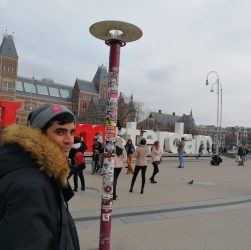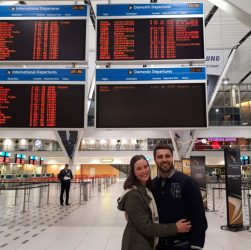Pre-departure At first, I felt overwhelmed by what seemed to be a lot of admin from Stellenbosch University’s side. Little …


Pre-departure At first, I felt overwhelmed by what seemed to be a lot of admin from Stellenbosch University’s side. Little …

Adventures in Amsterdam I have recently returned from a life changing journey on my six month exchange at the Economics …

Pre-departure: Going abroad can be very exciting but also overwhelming. However, preparation and planning can help reduce any uncertainties that …